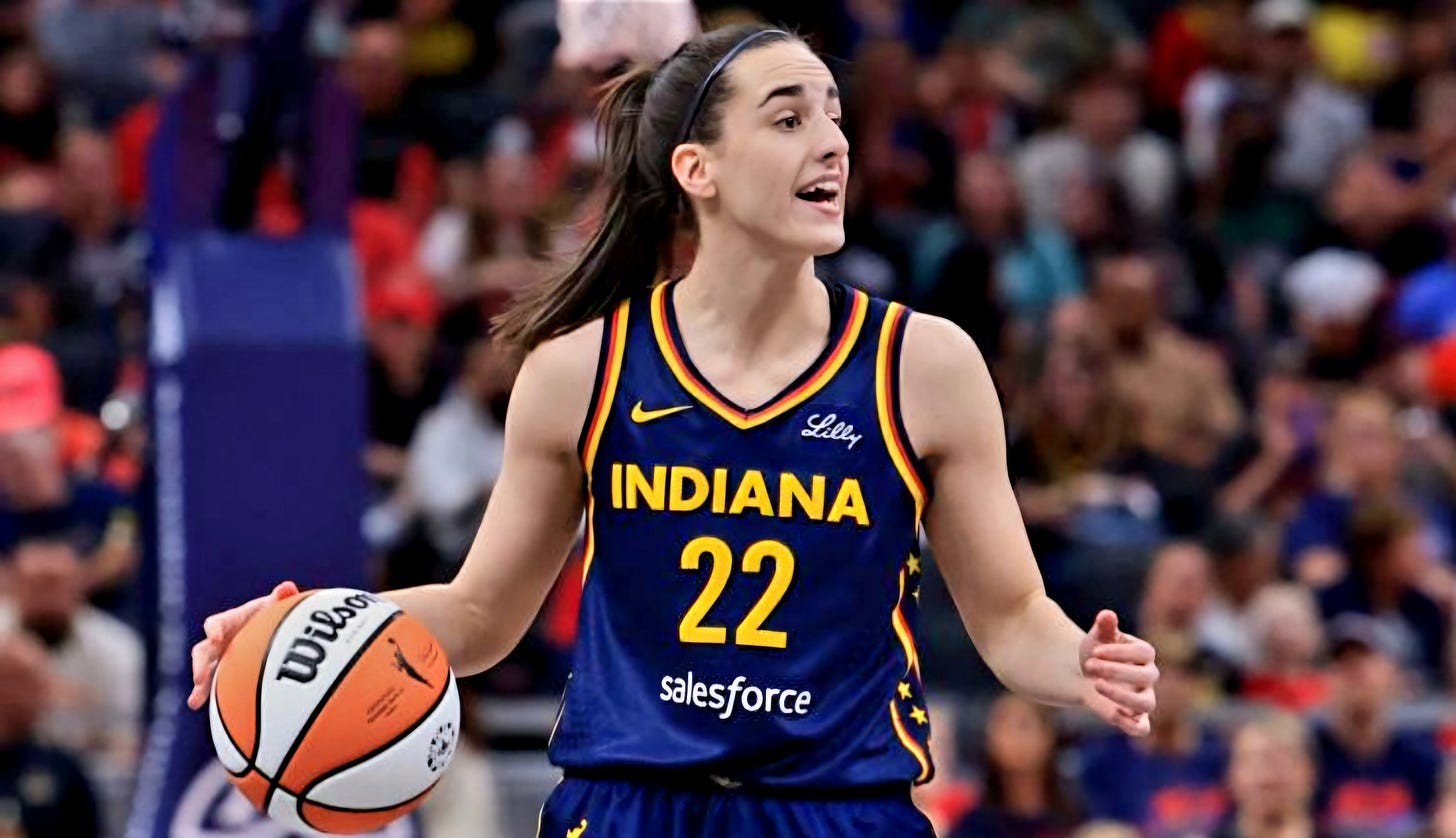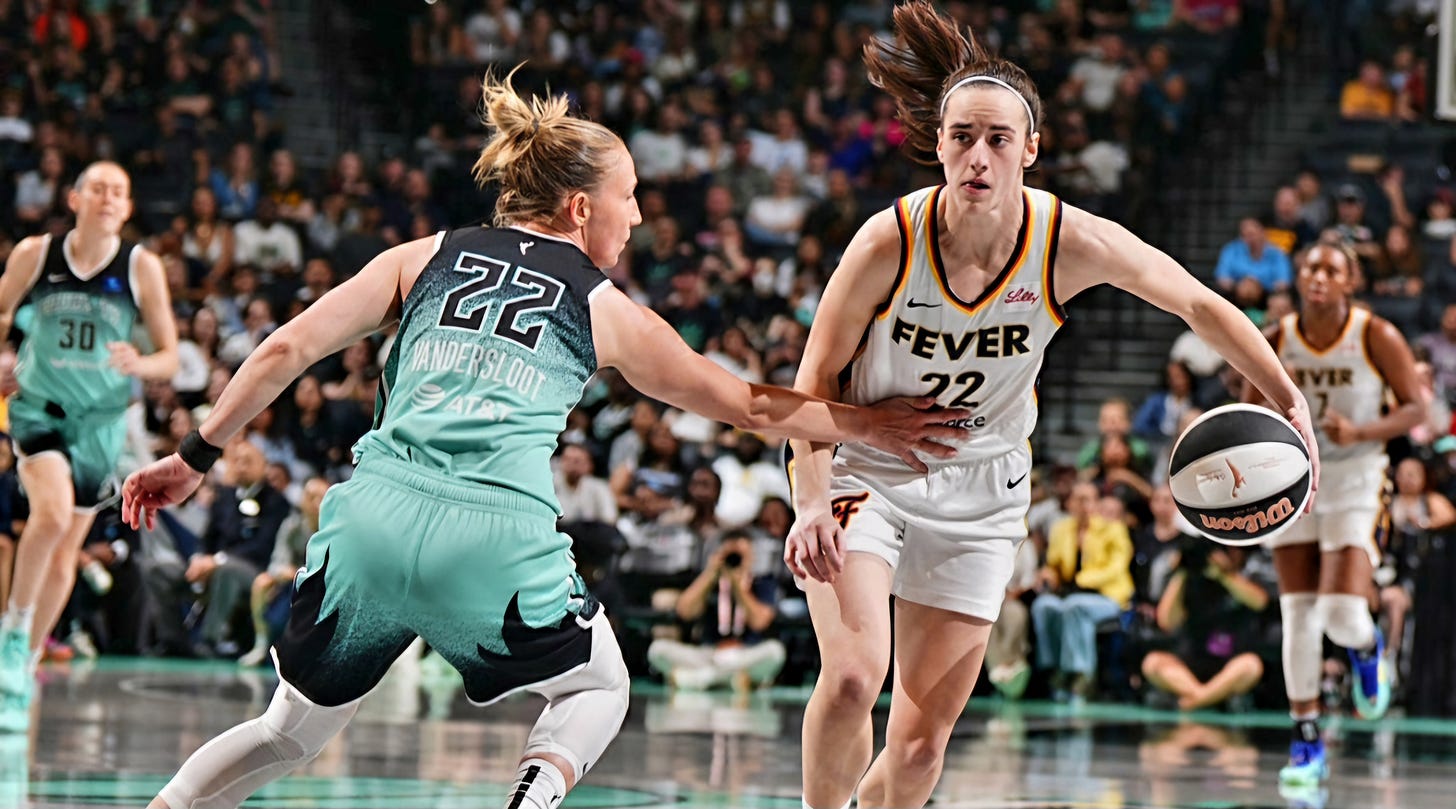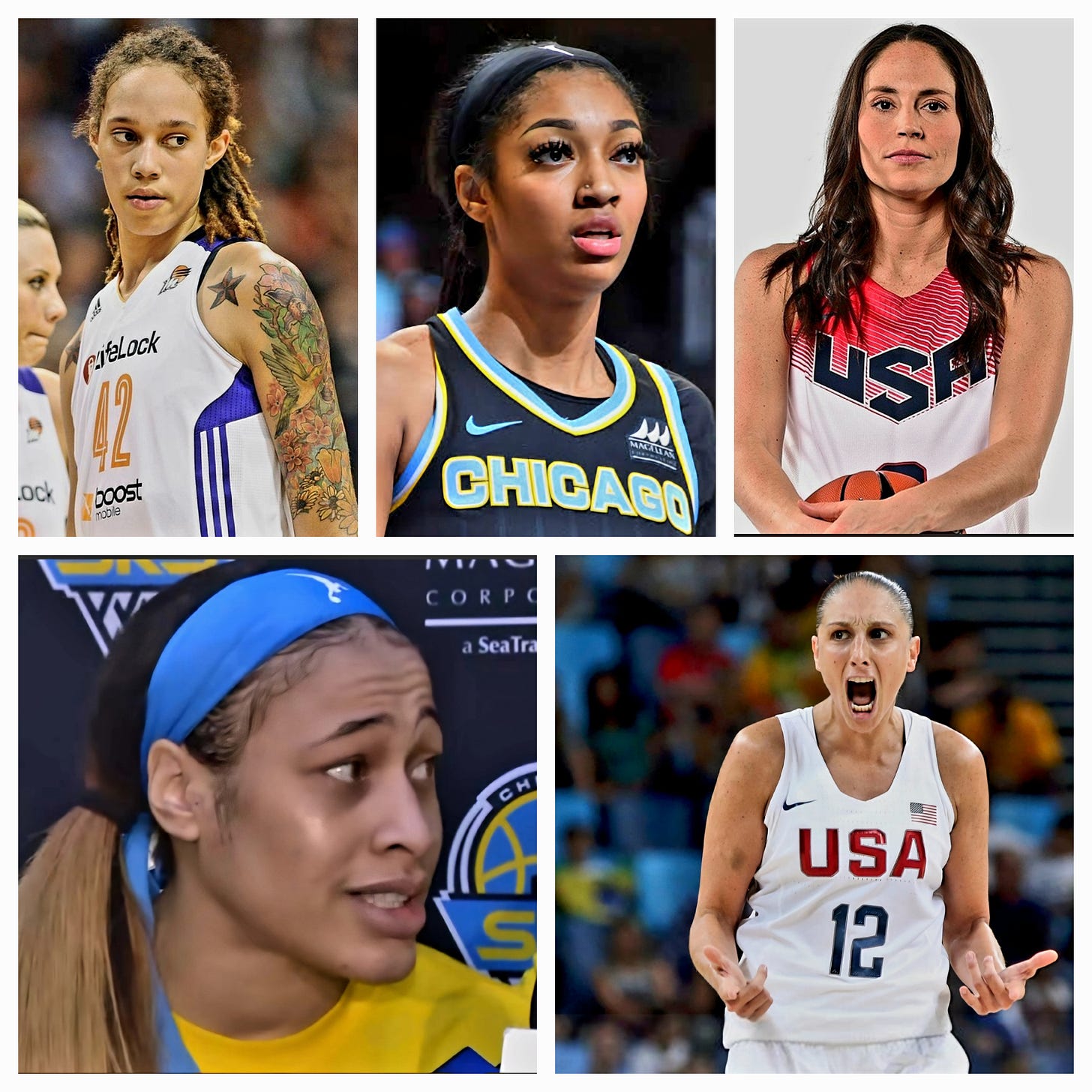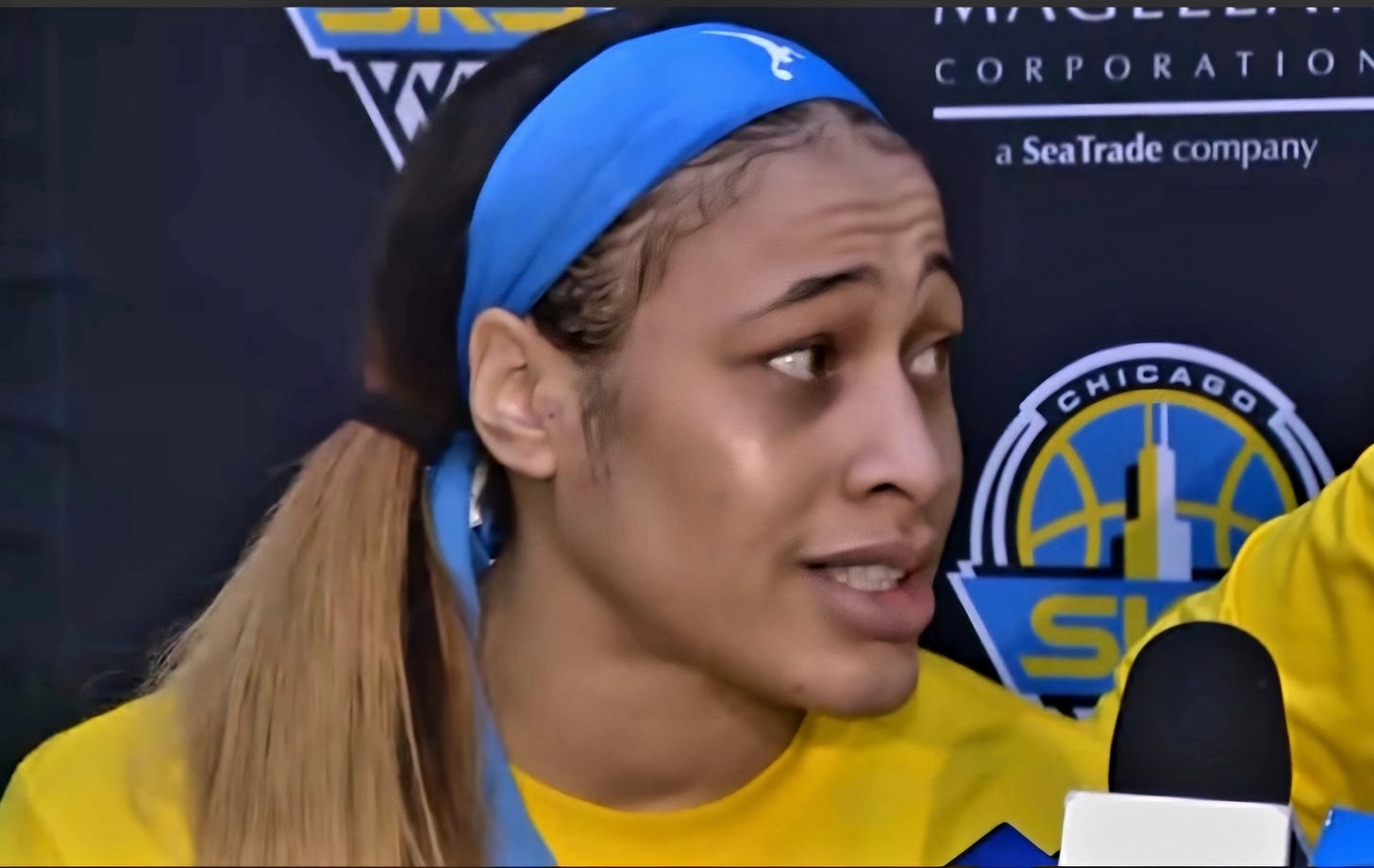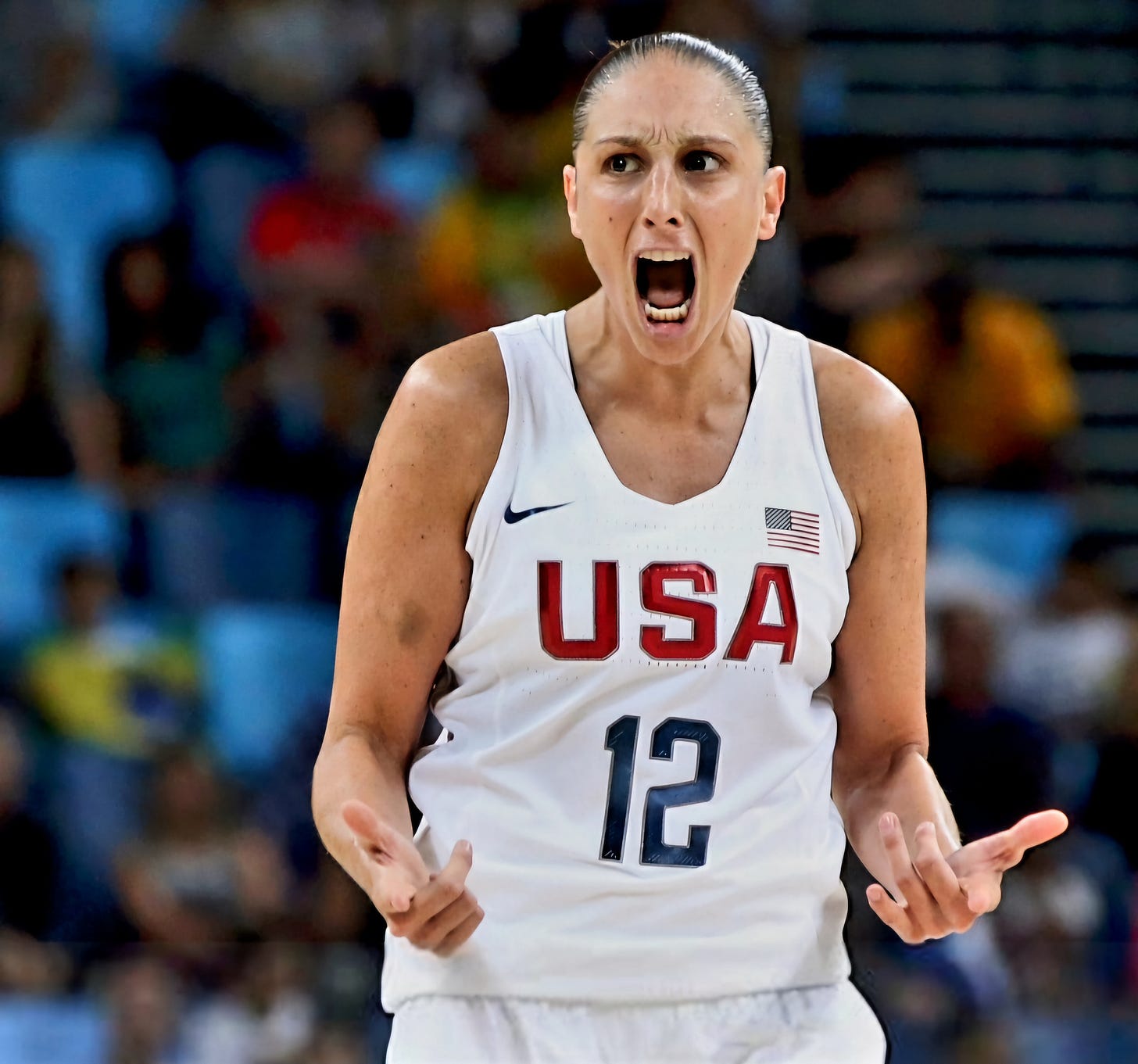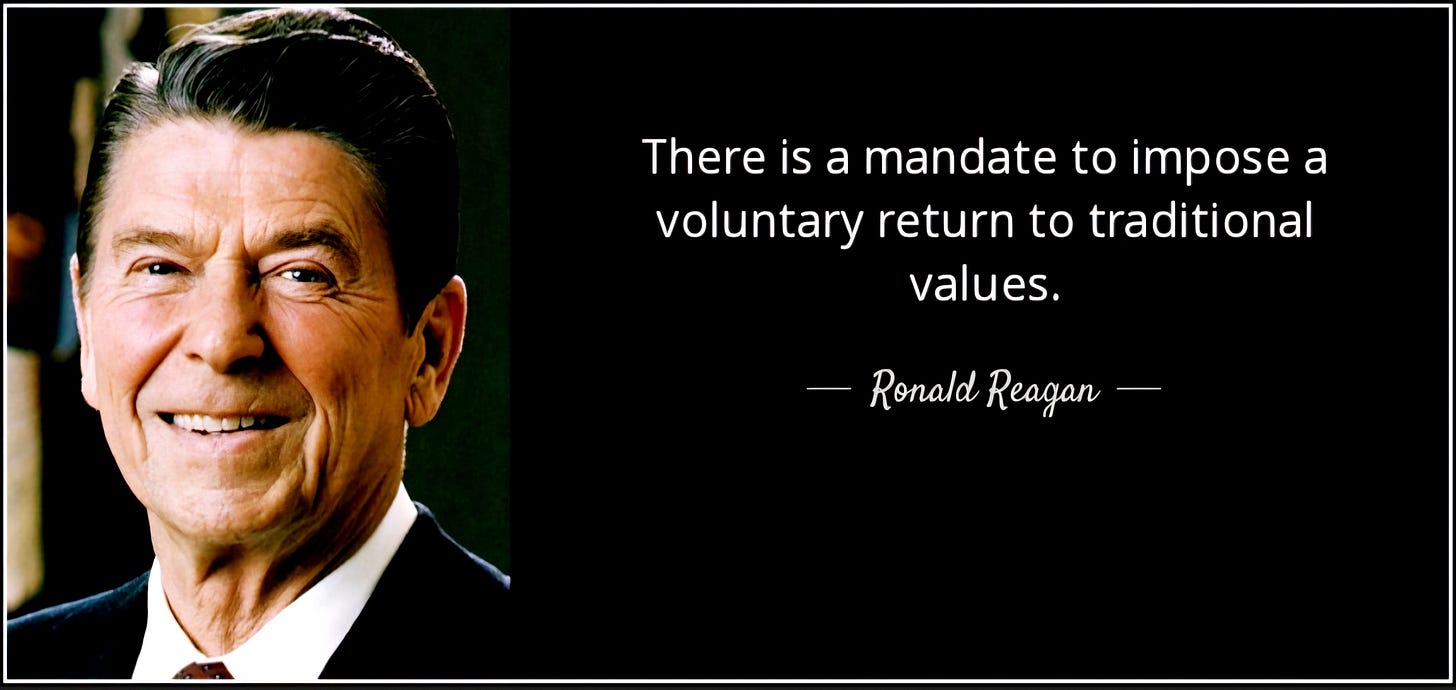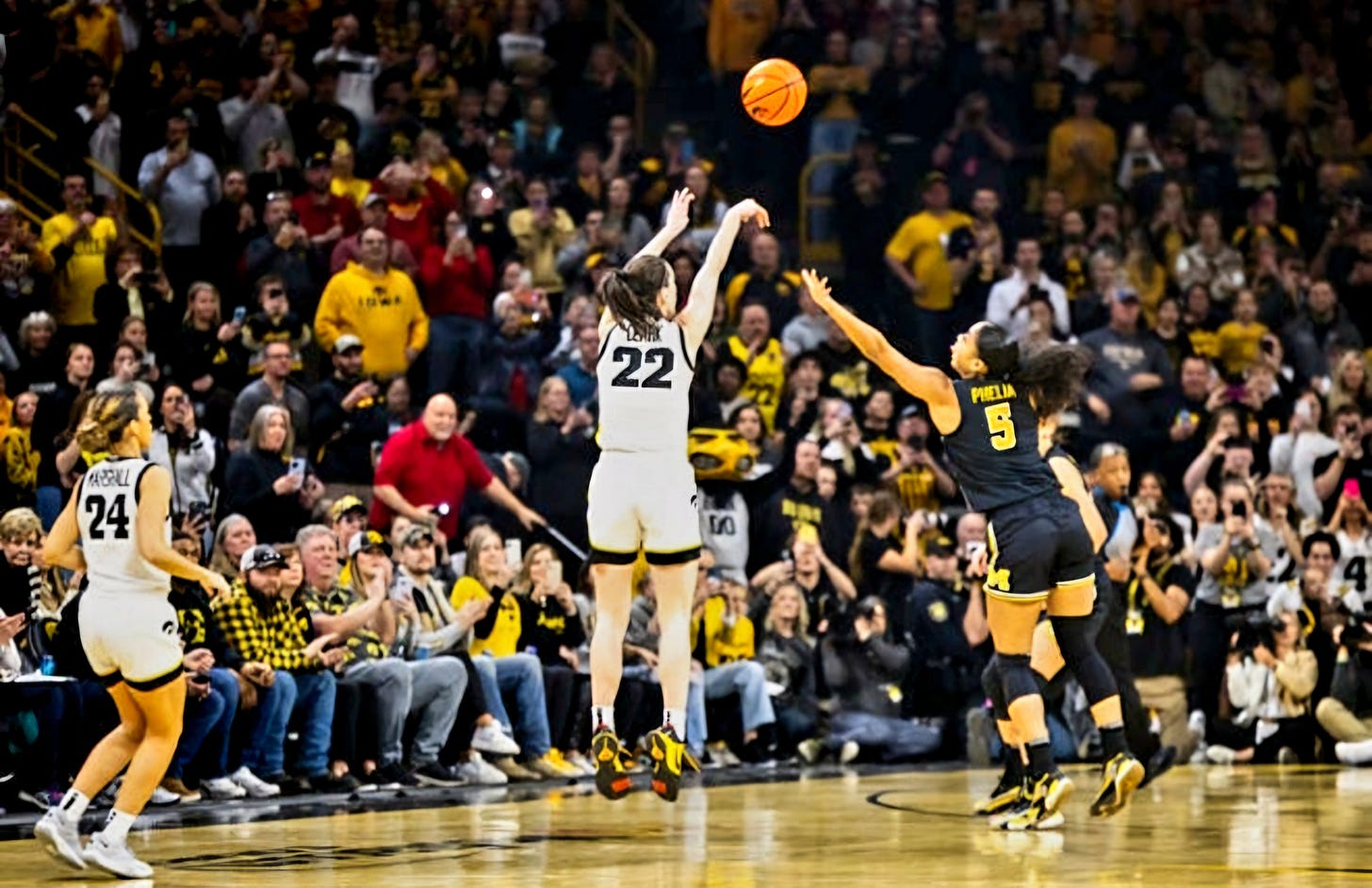THE CLARK EFFECT
the effort to ruin a generational talent
After a stellar high school career and a record breaking four years as a college star, Caitlin Clark entered the WNBA as the number one draft pick. But, stunningly and sadly, Catlin Clark is at the center of cultural chaos.
Even before joining the league, it was evident that a number of WNBA insiders were determined to “take her down a peg or two.” Rather than celebrate her unparalleled achievements and the unprecedented attention she was bringing to women’s basketball, they chose to pounce on her, treating her as almost subservient to the more seasoned voices of the league.
Though there is always a certain learning curve and need to adapt to a new situation, Catlin Clark was basically demoted ahead of time, treated as a child in need of “expert” pontificating (i.e., sophomoric attacks), an inferior commodity whose college exploits were getting too much attention.
There is no doubt a measure of jealousy among those veteran players who feel slighted that someone younger than they would receive more attention and, in most cases, more money. But when a superstar enters the fray, whatever the occasional behind the scenes tensions, there is usually an embrace of that individual, a recognition that the newcomer is good for the sport overall. Thus, when Magic Johnson joined the Lakers, he was featured by the NBA and treated as a celebrity long before he had achieved anything professionally. Indeed, this mostly positive approach helped propel Magic to stardom, including a Finals MVP performance in his team’s championship run during his first year. Within a competitive sport, certain opposing players no doubt wanted to show up the rookie, but there was no obvious antagonism against the young star. +
Caitlin Clark, by way of contrast, has not been treated fairly by those who take the court with her—both opponents and teammates. While the WNBA executives have highlighted Clark, seeking to capitalize on her popularity, the same is not true for those actually engaging her.
The animosity is obvious. She has been regularly hacked by deranged defenders, ignored by not so talented teammates, trivialized by her coach, and disrespected at times by the referees. The Chennedy Carter incident (the cheap-shot against Clark) is merely the most obvious example of how this young girl, Clark, has been treated from the outset. There seems to be a kind of bullying taking place, a determined effort to crush the star from Iowa, demonstrate that she is not all that impressive, and force her to bow to the WNBA mob.
No, this is not merely about growing pains, paying your dues, or “Freshman” initiation. It is unquestionably an assault on a single individual, a concerted effort by multiple opposing players to crush the spirit of Caitlin Clark, a sometimes less obvious and other times blatant endeavor to take down the new face of women’s basketball.
The key issue, of course, concerns the motivation for such relentless opposition to Clark. Why the resentment? What motivates such fervent opposition to another player, especially when you factor in that Catlin Clark by herself is the reason why so many eyes are on the WNBA right now? People are not watching in record numbers because of veteran players, and they are not interested because of other rookies who are piggybacking off of Clark. This is a Caitlin Clark phenomenon, period, and the movers and shakers in the league are not thrilled about the attention she is receiving. Again, why?
WHY THE HATE?
One obvious cause of the friction is simple pettiness, jealousy. Clark has had a stellar career to date, shattering countless records along the way. As a result, and because of the new NIL* regulations, Caitlin was able to capitalize through a number of endorsements and so came into the WNBA making far more money than even the current all stars. This has elicited envy on the part of certain players.
Of course, as any objective observer recognizes, the reason for the relatively low salaries among professional women’s basketball players is because the league does not make a profit. Frankly, it has never been popular among the masses. This is why the current players should be celebrating Catlin, for she makes possible the growth of the league, and this might potentially have a ripple effect on all participants. As commonly stated, a rising tide lifts all boats. Unfortunately, this has not been the attitude of many, and it seems that resentfulness and jealousy are what drive a good number of these women.
This goes beyond simple pettiness, however, for there is a clear racial component to the anti-Clark fixation. The majority of players are black, and it is evident that some despise the idea of a white player being the attention-getter of “their league.” This is, of course, childish and, more to the point, a vile outlook. Plainly stated, this is not an African American women’s league, but a league that happens to be composed of a good number of African Americans. Though not all black players behave this way, of course, and while the hate for Clark extends beyond one group, it is hard not to notice how some, including those on her team, are less than excited about her prominence on the big stage. This, I believe, is part of the reason for the struggles Caitlin has had during certain games. If you don’t allow her to shine, if you demote her to “low woman on the totem pole,” she will be squeezed into unconformable spots. You can easily observe that Catlin forces passes to players because she wants to be “fair,” and this has led to some uncharacteristic turnovers. She also seems to almost hide on occasion, taking herself out of the offense. Then when she feels like it's her turn, she tends to force the issue, which has led to some easy misses by the sharp shooting guard. Her teammates surely know that Catlin Clark was the number one pick for a reason, her shooting and passing being at the top of the list of her abilities. Yet, there appears to be no plan or effort to allow her skills to surface. Keep in mind, as well, that this is not a good basketball team, at least not now. So why would a poor team struggling for wins and cognizant of Catlin’’s impressive skill set, not make an intentional effort to regularly utilize her gifts?
Finally, there is little doubt that some of this is driven by lifestyle. Obviously, we cannot read hearts and don’t want to place everyone inside the same rubric. But, as a rule, one cause of most fans’ disinterest in this league is that it has become the landing spot for those who insist on announcing and celebrating their lesbian relationships. As a number of commentators have noted—though most are afraid to say—this is something of an angry lesbian association. And this is why a lot of fans are not interested in the WNBA. As Clay Travis notes, “Caitlin Clark is a white heterosexual woman in a Black lesbian league and they resent and are jealous of all of the attention and the shoe deal that she got.” #
Travis continued to emphasize the point, saying that Clark’s presence in the league
creates two different identity politics universes that she doesn’t fit in . . . They don’t like her cause she’s white and they don’t like her cause she’s straight. And as a result, the league is coming undone around her even though she’s bringing in new fans. @
While there is a genuine interest in women’s basketball, there is a great distaste for a league too often dominated by women pretending to be (or mimicking) men. Though I am fairly confident that these issues are rarely spoken of directly to Clark or other heterosexual players, the subtle and not so subtle imprint on the league is one of alternative lifestyle. Others, including some former players, have stated how angry, resentful, defensive lesbian women have allowed their gay and/or woke agenda to influence the disposition and focus of the league. **
To further highlight the stance of some WNBA insiders, Caitlin Clark has apparently been left off of the women’s Olympic team. Whether or not they correct this (and perhaps there are facts we do not currently know), the snubbing, if true, is yet additional evidence of something unhealthy.
As Jason Whitlock, an outspoken critic of wokism but supporter of Caitlin Clark, has said, “Women's basketball decision-makers are not dumb. They've been bullied by the BLM-LGBTQIA+Silent P Alphabet Mafia bigots."
Whitlock adds,
Same cowardice that built George Floyd statues, turned Juneteenth into a federal holiday, codified same-sex marriage, allows “kid-friendly” drag shows, let 'Lia Thomas' swim . . . They keep making offers we don't refuse. &
BEYOND THE HARDWOOD
This onslaught against Catlin Clark is sad for women’s basketball in general and for Caitlin herself, who must be feeling a measure of disillusionment at what she is experiencing. But it also reflects wider issues that impact us all. Jealousy, racism, and the LGBTQ movement have all contributed to the downfall of society.
Jealousy is an obvious temptation for all of us. When others have and we do not, it is easy to fall prey to animosity. As for racism, it has played a role in every civilization, including America. Thankfully, much of the unfairness and prejudice that were once common have been reduced. With the Civil War, the Civil Rights Movement, and the trend toward civility and fairness that began to take root decades ago, the practice of unambiguous racism was largely pushed away from most segments of the culture. Though it has never been and never will be perfect, I recall the assessment once provided by a good friend of mine who said “We had these things pretty much figured out in the ‘80s.” Today, however, there has been an effort to divide our country. Some seek reparations. Many are taught to embrace victimhood. And countless numbers of light skinned individuals experience so called white guilt. Each of these is immoral and ought to be rejected. But progressives, leftists, and democrats have made racism one of their platforms.
White liberals and progressive black leaders have joined together to create disunity, and this usually requires oppressors and victims. Sadly, far too many blacks have succumbed to this demeaning mentality, and this has morphed into an anti-white agenda that permeates the country. Equally regretful is the forced acceptance of guilt among many whites, which amounts to little more than virtue signaling. The false narrative of victimhood and oppressor has surely damaged us all.
It is no surprise, therefore, when young black people, told every day that they are victims and that white men are to blame, allow this to dominate their lives.
The LGBTQ issue is perhaps most controversial of all. Homosexual behavior has been largely normalized by many. Though I do think a good number of people truly frown upon such lifestyle choices, it has become publicly “acceptable” in most circles. Without entering too far into the matter, let it be said that most of society throughout our history has recognized the impropriety of same-sex relationships. That gays are so quick to share the floor with trans and others provides some insight into the attitudes that dominate these communities. While those within these groups would quickly accuse me of being homophobic or transphobic, this really has nothing to do with fear. It is, rather, an attempt to understand what is right, maintaining long held standards. This is not about hate, a desire to restrict the freedoms of others, or any type of phobia. It is rather a very rational, defensible, and biblical view—an effort to discover and humbly apply God-given standards. ++
Catlin Clark’s early career serves as a microcosm of things quite pronounced in our society. There is conflict between the haves and the have nots, between those with superficial differences, and between traditional values and wokism.
Jealousy can be countered by selflessness and service. Superficial differences are, well, superficial, and these must be replaced with an emphasis on the primary traits we share in common. And alternate lifestyles, acceptable as they seem to be today, will be supplanted by traditional ideals only to the extent that we shine a light on truth—living it out and sharing it with conviction and compassion in a world that has lost both its mind and its sense of objective morality.
The Caitlin Clark Derangement Syndrome we are witnessing is reflective of the wider lunacy that has captured many today. Hopefully, the WNBA will find its way to sanity, treating Caitlin Clark with respect and allowing her to play her game. Many are cheering for her, of course, though the path forward may not be a smooth one. All we really want is a return to normalcy and logo threes.
—-------------------------


